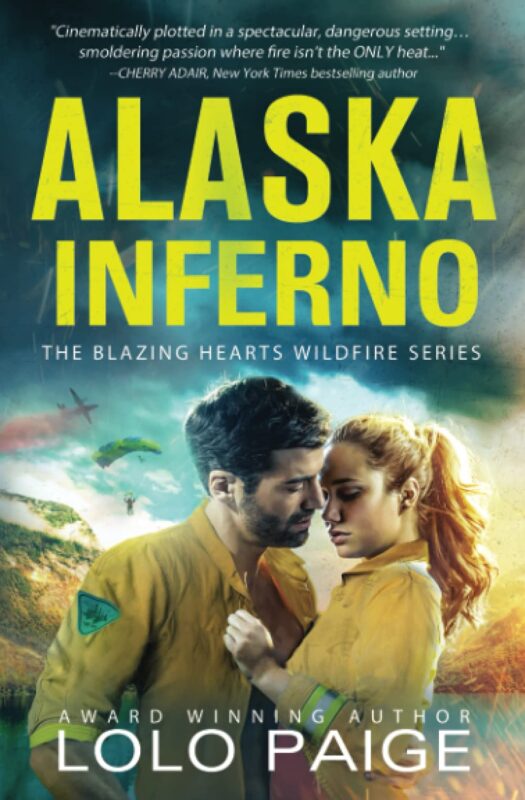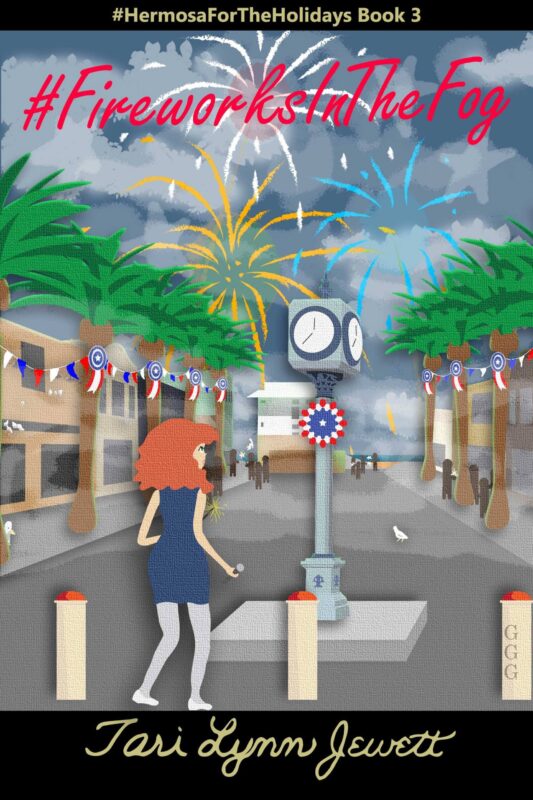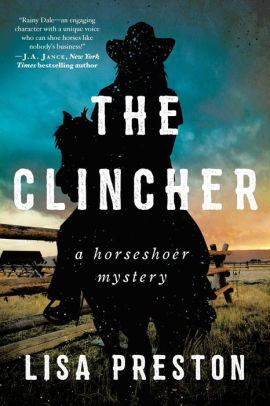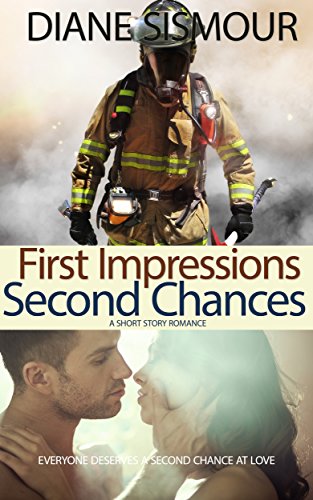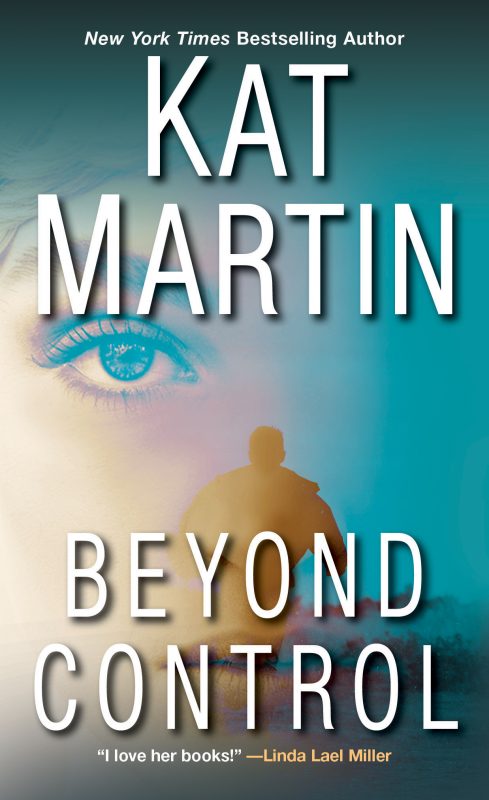Beware the Company You Keep by Jenny Jensen
April 19, 2020 by Jenny Jensen in category On writing . . . by Jenny Jensen
Beware the company you keep.
Hunkered down, social distancing, getting that restless cabin fever thing. Having made myself nuts listening to 24/7 Corvid19 updates I’ve weaned that to 5 minutes a day. That leaves a lot of free time. I tried cooking. The eggplant parma that came out of my oven looked nothing like the one onscreen at Food & Wine. I won’t comment on the pea soup, though I may try to sell it to a prop house. Enough wasting precious food stuff; back to what I know best.
Books are my ‘go to’ and like millions of us, I’m bingeing. That’s not anything new, of course, but this time I’m really binging—like eat, drink, sleep, dream, 24/7 bingeing.
I decided the Cozy offered what I need most—to be surrounded by friends— friends with far more exciting lives than mine. Cozies are character driven, filled with smart/plucky/idiosyncratic/befuddled/unique MCs. There’s always a supporting cast of peculiar vicars/spinsters/widows/jolly butchers; a bucolic village or a quaint boutique of some sort (I always over-eat when the MC owns a bakery) and an historical local feature—castle, manor, deserted distillery etc. Oh yes, and a dead guy or two. All stuff a socially distanced gal can sink her teeth into.

I started with Agatha Raisin (M.C. Beaton). I love this character—egotistical, insecure, smart, intrepid etc. Agatha gets bored easily and by book 7 a nasty suspicion began to nag me. Was she orchestrating all this mayhem? We know her PR skills, her lust for the limelight, her mastery of manipulation. Could it be that beneath her plucky facade lies a serial killer? What better way to keep one’s fame flame burning than solving the statistically improbable number of Cotswold murders? Do I really want to hang with her?

I turned to Miss Marple (Agatha Christie, of course!). She’s a chameleon. She blends to invisibility in any setting just by sitting demurely with her her knitting. She sees and hears everything and remembers it all. Murder plagues even her slightest acquaintance and she perches like a spider ‘til the culprit shakes her web and he is revealed. Even with six degrees of separation, I don’t want to know her. I could be the unfortunate victim of her butcher’s wife’s cousin-in-law. It’s too bad because the village of St. Mary Mead sounds so lovely—until I recall Miss Marple’s own words, “There is a great deal of wickedness in village life.” Time to move on.

Flavia deLuce (Alan Bradley). Just the ticket! Flavia is a prodigy, a wit, a poverty stricken blueblood and she’s 11 years old. She welds a grand vocabulary, intimidates adults, and has a Phd in cheekiness. Flavia’s hobby is chemistry and really, science in general, and she uses her hobby to solve the who dunnit of every body she stumbles on in “Bishop’s Lacey, a notable hotbed of crime.” See! I’m completely reassured. Flavia is the perfect company to keep. She does nothing to attract all that homicide; that’s just a Bishop’s Lacey issue. Besides, she named her bike Gladys. I’m sticking with her.
I hope all of you have found your binge worthy material. Read on and stay well.
Jenny
2 0 Read more
Curly Tuwitt and the Rhode Island Red
March 19, 2020 by Jenny Jensen in category On writing . . . by Jenny Jensen tagged as flash Fiction, short story
Yesterday Rebecca Forster posted a challenge on FB. Write about whatever pops into your head right now. I’d just listened to the 1st WH news conference and feeling an odd mixture of ignorant, apprehensive and sardonic this is what came tumbling out:
Only one Rhode Island Red crowed like that. And it hadn’t come from Scoundrel’s pen. Curly Tuwitt ground his teeth—all seven of them. He hated that wart faced, belly slitherin’, wrinkled old hag on a good day but this—this was the last straw from a lifetime of her crap.
Already het up over the never ending updates and dire warnings about that Chiineeze virus pouring from the TV, pissed that he’d failed to stock up on anything and was out of everything. (There was that one lone can of beans, and he hated to think what that could lead to.) A second, clearly distant call from Scoundrel chased out any thoughts of supplies and focused his blazing anger.
The first time he’d seen her was skippin’ across his grannie’s strawberry patch, just a pickin’ and a nibblin’ her way through those fat ripe berries like she done own it all; like she’s the one who’d been out in the last frost, barefoot and freezin’, just to get the young plants covered and then come early summer who you think did the weedin’ and the waterin’?
He wasn’t but six and that girl looked tall. Despite that he knew she weren’t much older than him. With that fiery red hair and those rusty freckles like she was in the way come sloppin’ time he knew this was Marjo Geordy. Pa said that whole clan was troublesome.
“Hey, you there! Put them berries down now or I’m a gonna whoop your skinny butt fer stealin.” Curly’d made his voice as deep and growly as he could and he’d stood his ground, frowning, like a man ready to make good on his word.
Marjo looked up, slowly placing a purloined berry into the basket on her arm. Her mouth, red with the smear of ripe strawberries, looked to be dripping in blood. A slow, malicious smile bared reddened teeth. “Where you want me to put ‘em, big scary man?”
Marjo didn’t sound scared and for a moment Curly was flummoxed. “Down. Put ‘em down. Right there.” Curly pointed vaguely to the edge of the patch. He hoped he sounded as stern as Pa when he caught Curly in the sugar bowl.
Marjo looked to where he’d pointed. Her smile got even wider and she turned back to him. “Okay. But you better be ready to grab this basket quick. I don’t give up easy.” Her long legs took three steps to the edge of the patch and reaching out one long skinny arm she placed the basket high on the top of a bush. Three reverse steps took her back in the patch. She didn’t have to say a word; her whole body screamed challenge.
Curly looked to the basket and knew he’d have to jump to reach it. I’m fast; I can do it. Running like lightening he’d leapt into the bush, grabbed the basket and got a snoot full of unmistakable scent—poison sumac. A cackle of mirth faded into the distance. That was just the first time.
Curly understood life takes us on unexpected paths. From his family’s farm down the road of economic highs and lows he’d come near his end in this dusty settlement of trailers, not more’n 60 feet from his nemesis. There was some satisfaction in seeing Marjo brought to the same pass but she had taken Scoundrel and that was the final poke she was gonna take at him.
Heaving himself out of the recliner he slammed out the door, grabbed his pitchfork and stormed across the open 60 feet. “Marjo Jean Geordy you give me back my rooster or I’m gonna use this pitch fork to take him.”
“Possession is nine tenths of the law. Got papers to prove that last one tenth?”
“You stole Scoundrel and you know it, you skinny old cow.”
“Naw. No stealin’. I just took him to try him out. I like him. That rooster is as purdy as everyone says. I‘ll trade ya for him.”
It was always like this. Marjo Geordy bein’ all reasonable like and Curly Tuwitt gettin’ flustered and maybe a little confused. “You can’t trade for somethin’ ya stole.” Curly glared at Marjo who leaned calmly against her little storage shed.
“Mebbe not in regular days but things’re a bit different right now. Might be there’s somehin’ you want more’n that rooster.”
Curly lowered his pitchfork, eyes wary as he saw the familiar smile creep over her lips. “What could I possibly want more’n the best Rhode Island Red in the tri-counties?”
Still graceful and wiry after all these years Marjo turned and pulled the shed door open, bowing like she was presenting the Queen of Sheba. Curly stared into the shadows at rows and rows and stacks and stacks of toilet paper.
It had always been like this and it looked like it always would.
4 0 Read moreWriting The Dreaded Book Blurb by Jenny Jensen
February 19, 2020 by Jenny Jensen in category On writing . . . by Jenny Jensen tagged as Blrubs, clickbait, Marketing, writingFrom Our Archives

Cartoons by John Atkinson, www.wronghands1.com
Writing The Dreaded Book Blurb
Every author faces this last crucial challenge. You’ve already spent untold hours researching, writing and editing your book. Your title hits just the right poetic note. You’ve gone several tense rounds to find the perfect cover. All that remains is the book blurb, the opening salvo in the promotional war. This is the first (and sometimes only) chance to grab a reader and compel them to buy the book. And so, like click bait, you need to lure your reader with an honest but irresistible snap shot.
It’s an art, this writing of a synopsis that isn’t a synopsis, this sell copy that isn’t an ad. And for something that isn’t a science there are strict rules: you have to be honest – no misleading the reader. No spoilers or why bother to read it – which can be tough since the spoiler is often the most exciting part of the story. Keep it at 200 words or less and don’t make it one run-on paragraph. Use the proper keywords for your genre. Reveal something about the antagonist – readers like to know if they can root for the hero. This isn’t the place to relate the entire plot but you have to provide the zeitgeist, the feel of the tale. No easy task.
A lot of the writers I work with find this daunting and ask for help, which I am happy to provide. I think it’s difficult for the writer to step far enough away from their work to pick out the enticing, salient points and present them with the tension and intrigue that make for a successful blurb. To the author, all story points are important. I get that, but as an avid reader I know what works for me in a blurb. It’s not how much is said, but how compellingly it’s said.
I start with a deconstruction approach. It’s possible to distill any story down to bare bones. In his book Hit Lit – Cracking the Code of the Twentieth Century’s Biggest Bestsellers James W. Hall provided the most distilled example I’ve ever seen. This is a beloved tale that we all know intimately: “A young girl wakes in a surreal landscape and murders the first woman she sees. She teams with three strangers and does it again.” It’s short, accurate and intriguing but would it sell the book?
I wouldn’t distill it down that far but it makes a great beginning. What if we knew something about the young girl – an orphan, a princess, a refugee? And what about the surreal landscape – gaping desert, oozing swamp, forbidding mountains? Then the three strangers – female, male, older, menacing, kindly? Is all this murdering spurred by necessity, thrills, defense, the three strangers or is it unintended manslaughter? And finally, what is the young girl up to – revenge, enlightenment, finding a way out of the surreal landscape? Flesh out those points, add some genre keywords, reference any kudos and you could turn those original 24 spartan words into a 160 – 200 word blurb that would peak curiosity and entice the shopper to buy.
If you can step away from the totality of your story and deconstruct the plot to the primary elements, then present those elements in a provocative way you can create an effective selling tool with your book blurb. BTW, that book Hall described? The Wizard of Oz.
Jenny
1 0 Read more
Who Said That? by Jenny Jensen
January 19, 2020 by Jenny Jensen in category On writing . . . by Jenny Jensen tagged as dialog, good writingSnow falling. No deadlines looming. Perfect day to cozy up on the couch and read.
Deep into a very funny paranormal romance I reach the climactic moment when the cheeky young witch meets the acid tongued evil vampiress. Biting insults fly back and forth with the speed of fiery spells. I’m laughing and then…wait. Who said that? I have to go back to the beginning to be sure I understand which character that pithy insult came from. The dialog rages on for a page and a half, not a dialog tag in sight. The punctuation alone sets apart the speakers. The rhythm of the story is broken when I lose my place and I wish the author had found a way to make that clever, long exchange read effortlessly. It’s still funny and well written though, so I read to the end.
Not long ago I’d given up on a detective story when I stumbled on yet another doozy of a dialog tag line: “I want to go home,” she said vulnerably. Really, vulnerably? The character’s husband has just been gruesomely murdered and her junky son is in jail. I’m pretty certain she’s vulnerable. Worse, given the flow of the narrative I know who’s speaking. That adverb felt like hitting a chug hole at 40 mph. Sigh. That was the final disconnect for me – I’d lost the rhythm of the story. I no longer cared who’d murdered the bookstore owner.
The writerly world is flooded with dialog tag dicta. We have the Elmore Leonard – Steven King school of absolute ‘she/he’ said (and possibly, maybe, sometimes ‘asked’). We have the proponents of injected emotion: ‘she yelled’, “he cried”, “she demanded hotly”. And then there are the minimalists who reject all tags, relying solely on punctuation to set speakers apart.
There are no rules for dialog tags, and I don’t champion making any, but smart writers are aware of how a tag affects the narrative flow and when it adds to, or detracts from that flow. The purpose of a dialog tag is to identify the speaker. Good storytelling shows emotion so the narrative circumstances and the wording of the dialog will convey how the words were said. Depending on how the scene is structured no tag would be needed, or ‘said’ would be enough.
And then there are those instances where a more elaborate tag is vital. (There really are no rules!) All the great writers occasionally use some variation of ‘she snarled’ ‘he groaned’ etc. Sometimes it makes sense to support the dialog by a little telling. Even Steven King admits to slipping in an adverb in a dialog tag or two. A writer’s gotta do what their story demands. As an editor and reader I prefer that the music of the dialog within the setting of the scene show me all I need to know.
The reader’s inner ear will hear good dialog; it’s an unconscious understanding. For my money the best dialog tags are invisible. All that need register at the conscious level is the identity of the speaker. Does anyone knowingly read ‘said’? It’s like a good child, seen but not heard. “Unless it’s little Parker next door whose screams of delight fill me with joy,” I say unreservedly.
1 1 Read moreReviewing Reviews by Jenny Jensen
December 19, 2019 by Jenny Jensen in category On writing . . . by Jenny Jensen tagged as Book reviews, bookworms, indie authors, no spoiler alerts, reviews
Caution: This is a pet peeve. A rant may ensue.
I enjoy book reviews. I read reviews of books I might want to purchase, reviews of books I’ve read and loved, reviews on the works of authors I I know and love, reviews of books I’ve just finished, reviews of my client’s work. And I read reviews because, well, I really love listening to fellow bookworms talk about books.
Reviews are important to any author’s success, of course, but they’re especially important to the Indie author. Indie authors can promote any number of ways, but reviews are the crucial fuel for sales. Readers rely on reviews, especially if the author is new to them; Indie authors rely on reviews to find readers. It’s this fact that makes me so crazy when a review is an elaborate retelling of the story, complete with outing all the twists and mysteries as well as the resolution. That isn’t a review; it’s a damn book report.
I can feel my head begin to explode when a reviewer prefaces a sentence with ‘spoiler alert’. That’s not a pass to spill the beans. It’s a glaring neon sign declaring that this reviewer, this self appointed arbiter of storytelling, has kindly read the book for me. Now I can save my money because reviewer person has graciously taken care of that grisly chore of actually reading. (Audacity always makes my blood boil.) I mean, what about the word ‘spoiler’ don’t you understand?
A book review should give me some indication of why and how the book affected the reviewer. Specifics are welcome, the more insightful the better. Perhaps the author’s voice is particularly unique and pleasing, or the plot was a refreshing take on a well-loved genre. Maybe it’s the characters that win the day, or the book presented a world view that made the reviewer thoughtful. And if the reviewer didn’t like the book I want to know why. If the book was terrible, what made it a stinker? If some aspect of the story was off-putting be fair; not all readers like the same thing, which doesn’t necessarily make the work bad.
It’s not about the author. If a reviewer dislikes a book because the F-bomb and it’s numerous cousins were used it does not mean the author is in need of spiritual counseling. If the political bent of the tale does not suit the reviewer it does not mean the author could use time in a re-education camp. A review is about the story.
Being of mostly open mind and generally democratic spirit I’ll take the one or two line reviews of the “If you like fill in the genre then this is a must read” or “I spent a great winter weekend with this book. Highly recommend” variety. I may not have any specifics but there is something wonderfully persuasive about that kind of joyful sharing.
You may say I should just give a pass to the book reports and the spoilers, and you would be right. But I raise my pen-sword in defense of every Indie author I know, and those I’ve yet to meet. Insightful, honest reviews are sustenance to a writer. They impact sales and the writer’s heart. When you review, do it with substance. Please don’t retell the story – it’s the author’s story to tell and the reader’s tale to enjoy, and for the love of the muses, don’t give away the best bits. You’re going to make my head explode and I do not want my heirs to have to clean that up.
Well, I did say it might be a rant.
0 0 Read moreAffiliate Links
A Slice of Orange is an affiliate with some of the booksellers listed on this website, including Barnes & Nobel, Books A Million, iBooks, Kobo, and Smashwords. This means A Slice of Orange may earn a small advertising fee from sales made through the links used on this website. There are reminders of these affiliate links on the pages for individual books.
Search A Slice of Orange
Find a Column
Archives
Featured Books
ALASKA INFERNO
Can a series of wildfires lead to true love under a midnight sun?
More info →#FIREWORKS IN THE FOG
So, you’d like to become a social media star…
More info →FIRST IMPRESSIONS SECOND CHANGES
Everyone deserves a second change at love.
More info →BEYOND CONTROL
Present Danger—When Victoria Bradford got engaged, she told herself to give love a chance. Six months later, she's on the run from her angry, abusive ex-fiancé with her four-year-old daughter and nowhere to go.
More info →Newsletter
Contributing Authors
Search A Slice of Orange
Find a Column
Archives
Authors in the Bookstore
- A. E. Decker
- A. J. Scudiere
- A.J. Sidransky
- Abby Collette
- Alanna Lucus
- Albert Marrin
- Alice Duncan
- Alina K. Field
- Alison Green Myers
- Andi Lawrencovna
- Andrew C Raiford
- Angela Pryce
- Aviva Vaughn
- Barbara Ankrum
- Bethlehem Writers Group, LLC
- Carol L. Wright
- Celeste Barclay
- Christina Alexandra
- Christopher D. Ochs
- Claire Davon
- Claire Naden
- Courtnee Turner Hoyle
- Courtney Annicchiarico
- D. Lieber
- Daniel V. Meier Jr.
- Debra Dixon
- Debra H. Goldstein
- Debra Holland
- Dee Ann Palmer
- Denise M. Colby
- Diane Benefiel
- Diane Sismour
- Dianna Sinovic
- DT Krippene
- E.B. Dawson
- Emilie Dallaire
- Emily Brightwell
- Emily PW Murphy
- Fae Rowen
- Faith L. Justice
- Frances Amati
- Geralyn Corcillo
- Glynnis Campbell
- Greg Jolley
- H. O. Charles
- Jaclyn Roché
- Jacqueline Diamond
- Janet Lynn and Will Zeilinger
- Jaya Mehta
- Jeff Baird
- Jenna Barwin
- Jenne Kern
- Jennifer D. Bokal
- Jennifer Lyon
- Jerome W. McFadden
- Jill Piscitello
- Jina Bacarr
- Jo A. Hiestand
- Jodi Bogert
- Jolina Petersheim
- Jonathan Maberry
- Joy Allyson
- Judy Duarte
- Justin Murphy
- Justine Davis
- Kat Martin
- Kidd Wadsworth
- Kitty Bucholtz
- Kristy Tate
- Larry Deibert
- Larry Hamilton
- Laura Drake
- Laurie Stevens
- Leslie Knowles
- Li-Ying Lundquist
- Linda Carroll-Bradd
- Linda Lappin
- Linda McLaughlin
- Linda O. Johnston
- Lisa Preston
- Lolo Paige
- Loran Holt
- Lynette M. Burrows
- Lyssa Kay Adams
- Madeline Ash
- Margarita Engle
- Marguerite Quantaine
- Marianne H. Donley
- Mary Castillo
- Maureen Klovers
- Megan Haskell
- Melanie Waterbury
- Melisa Rivero
- Melissa Chambers
- Melodie Winawer
- Meriam Wilhelm
- Mikel J. Wilson
- Mindy Neff
- Monica McCabe
- Nancy Brashear
- Neetu Malik
- Nikki Prince
- Once Upon Anthologies
- Paula Gail Benson
- Penny Reid
- Peter Barbour
- Priscilla Oliveras
- R. H. Kohno
- Rachel Hailey
- Ralph Hieb
- Ramcy Diek
- Ransom Stephens
- Rebecca Forster
- Renae Wrich
- Roxy Matthews
- Ryder Hunte Clancy
- Sally Paradysz
- Sheila Colón-Bagley
- Simone de Muñoz
- Sophie Barnes
- Susan Kaye Quinn
- Susan Lynn Meyer
- Susan Squires
- T. D. Fox
- Tara C. Allred
- Tara Lain
- Tari Lynn Jewett
- Terri Osburn
- Tracy Reed
- Vera Jane Cook
- Vicki Crum
- Writing Something Romantic
Affiliate Links
A Slice of Orange is an affiliate with some of the booksellers listed on this website, including Barnes & Nobel, Books A Million, iBooks, Kobo, and Smashwords. This means A Slice of Orange may earn a small advertising fee from sales made through the links used on this website. There are reminders of these affiliate links on the pages for individual books.


